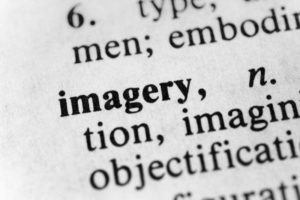And that is the million dollar question.
Everyone will want something different from their therapist.
You might want a specific type of therapy; Counselling, Hypnotherapy, BWRT, CBT, REBT, CAT, DBT, Existential, Psychodynamic, Person Centred or something else entirely different.
You might want a man or a woman.
You might want someone of a particular age.
You might need the therapy to be at or below a specific cost.
You might want someone with lots of years experience, or someone who is recently qualified.
You might want someone you can form a connection with or that might not be important to you.
You might want someone who has worked with a particular issue, or who has training in a particular area or this may not worry you.
You might want to feel that you can form an effective relationship with you therapist (maybe if you’re a ‘feelie’) or you might need to rationally know that your therapist has the right skills to help you (maybe if you’re a ‘thinkie’).
You might need someone who can be flexible with appointments, or someone who can give you a set time everyweek, or this may not matter.
You might want someone who has done lots of training, or this might not be a consideration.
You might want someone who is an intellectual equal or this may not matter.
You might want someone in a particular location.
You might want someone that other people you know can recommend or you might want someone that no one who knows you knows.
You might want someone who can give you detailed theoretical explanations or you might not want this.
There can be so very much to consider when choosing a therapist. For some, the preference may be as little as ‘I want a man/woman’ or ‘I need someone in X location’. For others, there may be more to consider, and gender and location may be less important than type of therapy, the connection, the knowledge, or the experience.
When you go for therapy with an organisation, or on the NHS, you may get the opportunity for some level of gender preference, but the rest will likely be out of your hands (although, if you go to an organisation, you can choose one that will give the best chance of meeting your needs).
If you’re choosing a private therapist then you have a lot more flexibility and choice.
It’s helpful to first think what is important to you when finding a therapist, and why. I guess these would maybe be ‘deal breakers’ for seeing a therapist. The preferences and considerations list I have written is not, by any means, exhaustive, and if you do have preferences, then it likely may be a few of those, not all of them.
Also, maybe think about the things that are not important, or that matter less.
And then research. There are lots of places to find therapists and to read and learn about individuals. Consider speaking on the phone, or e-mailing, to find out more about people who interest you. Also look at the website.
Ask questions. If you need to know about qualifications, professional bodies, experience, training, insurance, areas someone works with, DBS, or anything else then ask. Any reputable therapist will be happy to answer those questions.
If you need to be able to connect to the person, then meeting the person, or speaking with the person, can help you to know how that might be and if there is potential for you. Also, it’s ok to contact more than one therapist and see who works best for you. You might even want to meet with several before choosing who you feel you can work best with.
I offer a free consultation and one of the reasons for this is to give you, the client, the opportunity to meet me and see if I meet your preferences. There are many other therapists out there who do the same thing.
Choosing a therapist can be of huge importance as it is very possible you will be working with some issues that are challenging for you. You need to know that the therapist you are working with is the best fit for you at that time.
That trust in him or her is absolutely key.
That trust is one of the key components that will allow you to achieve what you want to in therapy.
Good luck 🙂




